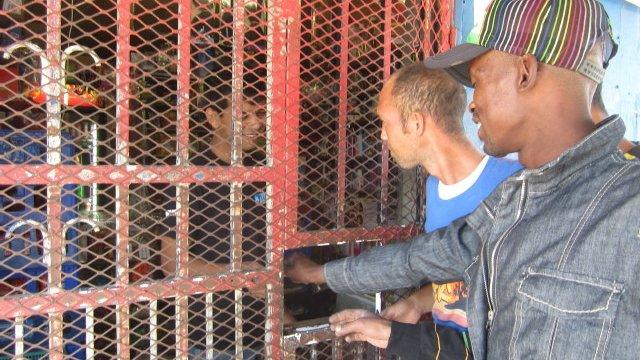South Africa xenophobia: Africa reacts
- Published
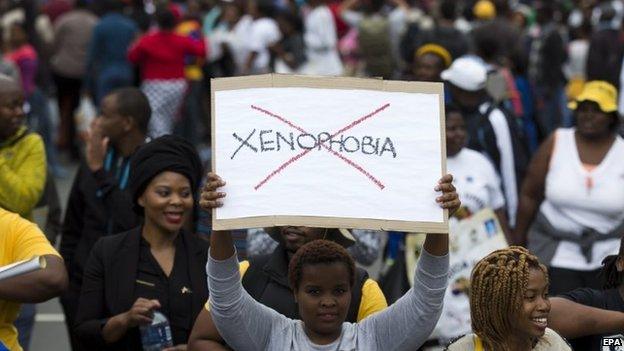
Some South Africans have protested against the xenophobic attacks
The upsurge in xenophobic violence in South Africa that started in the port city of Durban a few weeks ago has angered African countries, many of whose citizens have been targeted.
Foreign-owned shops have also been attacked and looted in Johannesburg, which experienced the worst of similar violence in 2008.
African nations feel particularly affronted by the attacks, given the support the continent gave to South Africa during its long fight against white-minority rule. Here are some reactions:

Zambia: Music blackout and boycott
Zambia's biggest private radio station Q FM has announced on its Facebook page, external that it has "indefinitely blacked out the playing of South African music in protest against xenophobic attacks on foreign nationals taking place in that country".
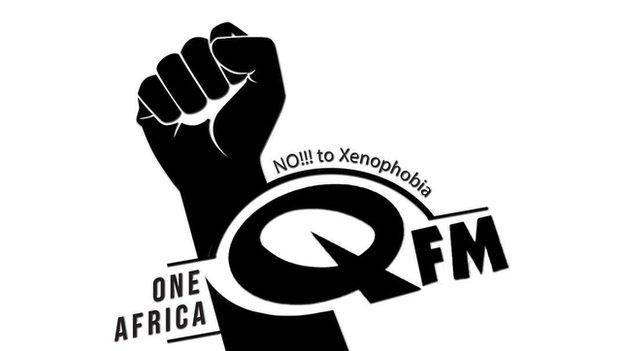
The radio station now features a special protest logo on its Facebook page
"We need to send a clear message to South Africans that violence on fellow Africans negates African unity which the forefathers of the continent fought for," the station said.
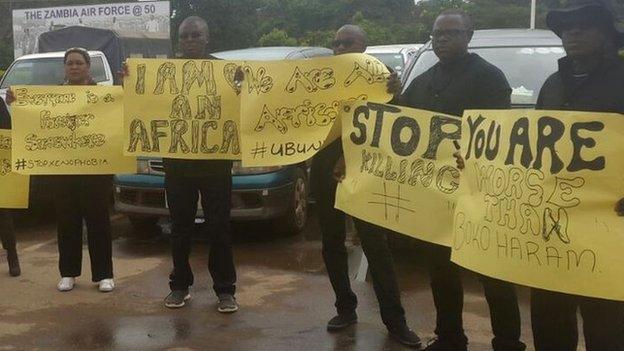
Protesters in Zambia were encouraged to wear black using the hashtag #blackfriday
Earlier, a small group of Zambian protesters went to the South African High Commission in Lusaka to complain about the xenophobia, reports the BBC's Meluse Kapatamoyo.
Malumbo Siwale in Zambia tweeted, external using the hashtag #blackfriday, which has been trending on twitter in Zambia: "Not buying or using South African products today, fight #xenophobia by pressuring the #SA govt to act #blackfriday".

Mozambique: Mine and gas workers evacuated
A road block has been set up near the Ressano Garcia border post with South Africa by a group of people who are stopping vehicles with South African number plates from entering the country and reportedly stoning some of them.
Mozambican workers at mining and gas companies have also protested about the violence, downing tools on Thursday demanding that South African employees leave - and that their jobs should be taken by those fleeing the violence in South Africa, says the BBC's Jose Tembe.
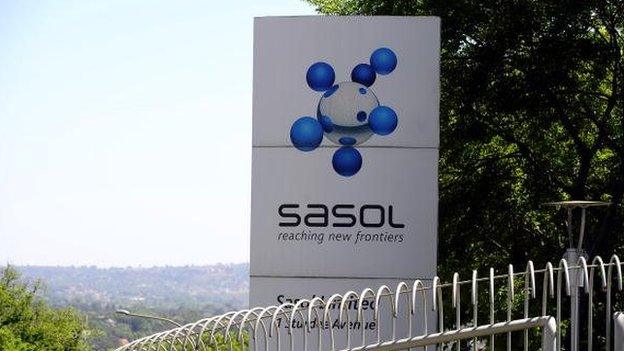
South Africa's largest oil producer Sasol is repatriating 340 South Africans from Mozambique
South African petrochemicals firm Sasol and Brazilian mining giant Vale have since evacuated some of its foreign workers.
The government has asked people not to retaliate against South Africans and urged Mozambican not to go to South Africa - some make the trip from the capital, Maputo, to go shopping at the weekend - so the situation does not escalate. An anti-xenophobia march in Maputo is also planned for Saturday.
A Mozambican youth group has posted this suggestion on its Facebook page, external: "In view of the xenophobic disgrace coming from South Africa, the Youth Parliament advocates that electricity and gas supplies to South Africa be suspended until [South Africa's President] Jacob Zuma comes to Mozambique to redeem himself."

Malawi: Goods boycott call
There have been calls for people to stop buying South African goods and services, spearheaded by John Kapito, executive director of the Consumers Association of Malawi (CAMA).
"We're urging Malawians to boycott all South African shops and goods," he told the BBC.
Several people have been killed in attacks on migrants in South Africa, as Milton Nkosi reports
"We're giving them one week to close their shops. On Friday next week we will physically close all South African shops like Shoprite and Game, if they don't close on their own. If they don't want us in their country, we don't want their goods here too."
Billy Mayaya, an activist in the capital, Lilongwe, has said that there are street demonstration planned next Tuesday, where protesters will deliver a petition to the South African High Commission - two days after the government plans to begin the repatriation of some of its citizens from South Africa.

Zimbabwe: Protest and artist boycott calls
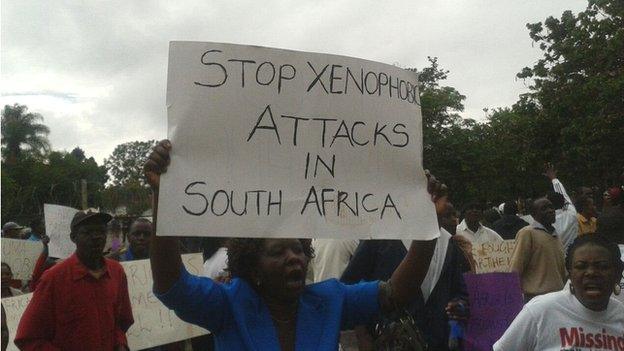
The protesters sang the South Africa national anthem Nkosi Sikelela' iAfrica (God Bless Africa)
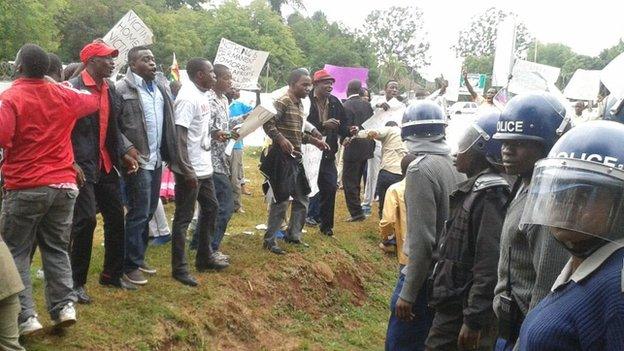
Riot police dispersed the protesters
Riot police in the capital, Harare, dispersed a crowd of protesters outside the South African embassy after they tried to force open the gates.
They were singing the South African national anthem Nkosi Sikelela' iAfrica (God Bless Africa) and the deputy ambassador eventually came out to receive their petition.
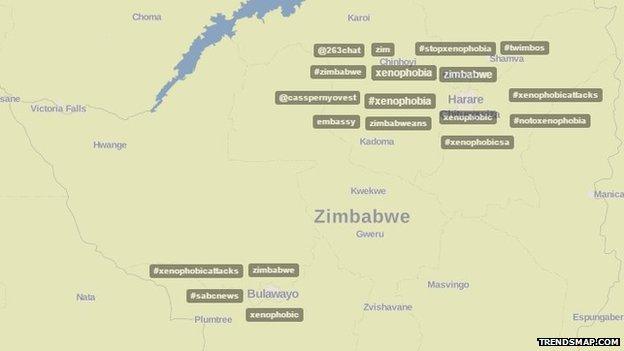
Hashtags about xenophobia are trending - and the BBC's Brian Hungwe in Harare says there are some messages going around on WhatsApp encouraging people to boycott South African acts at the upcoming Harare International Festival of the Arts (Hifa), which runs from 28 April to 2 May - but no artists have cancelled.
Zimbabwe's state-owned Chronicle reports , externalthat repatriation documents for 1,000 Zimbabweans in Durban have been arranged and the evacuation will begin on Sunday.

Nigeria: MPs debate action
Lawmakers in the lower house passed a motion on Thursday to recall the Nigerian ambassador to South Africa for consultations over the attacks. But an amendment calling for Nigeria to sever diplomatic ties with South Africa was defeated.
Sharif Danis, a Nigerian shopkeeper in South Africa, told the BBC's Milton Nkosi: ''We are worried and we are scared''
The MPs also debated whether to use existing legislation to put pressure on South African businesses in Nigeria if the attacks continued.
- Published17 April 2015
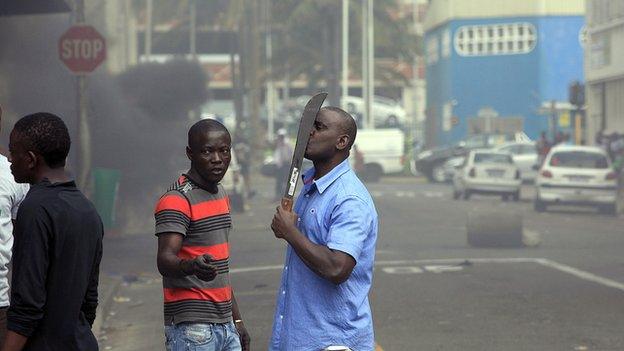
- Published16 April 2015
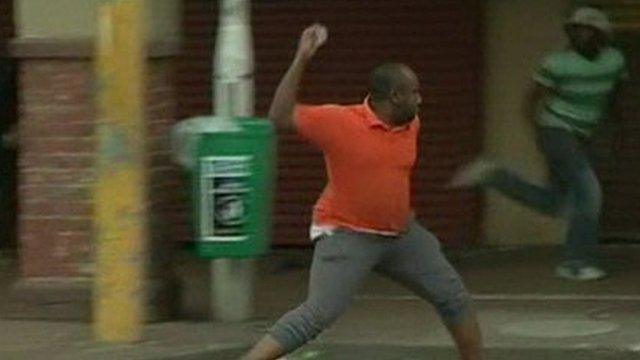
- Published14 April 2015
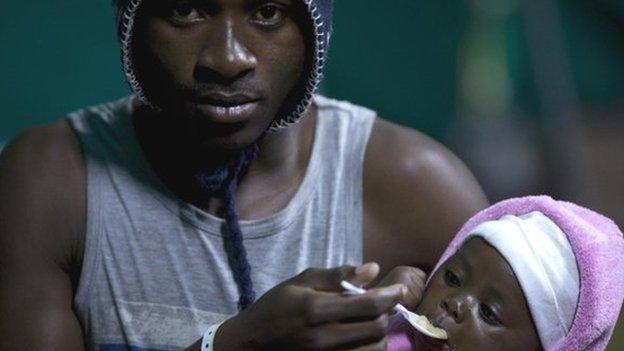
- Published14 April 2015
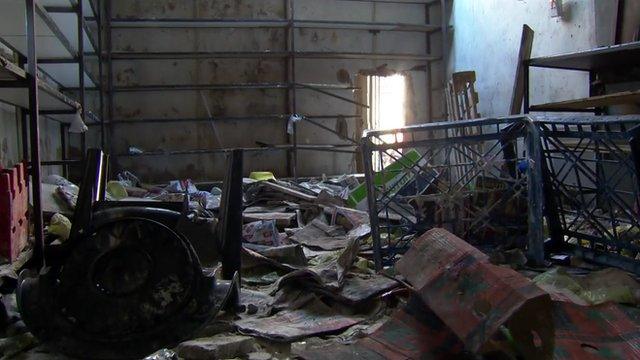
- Published1 May 2014
